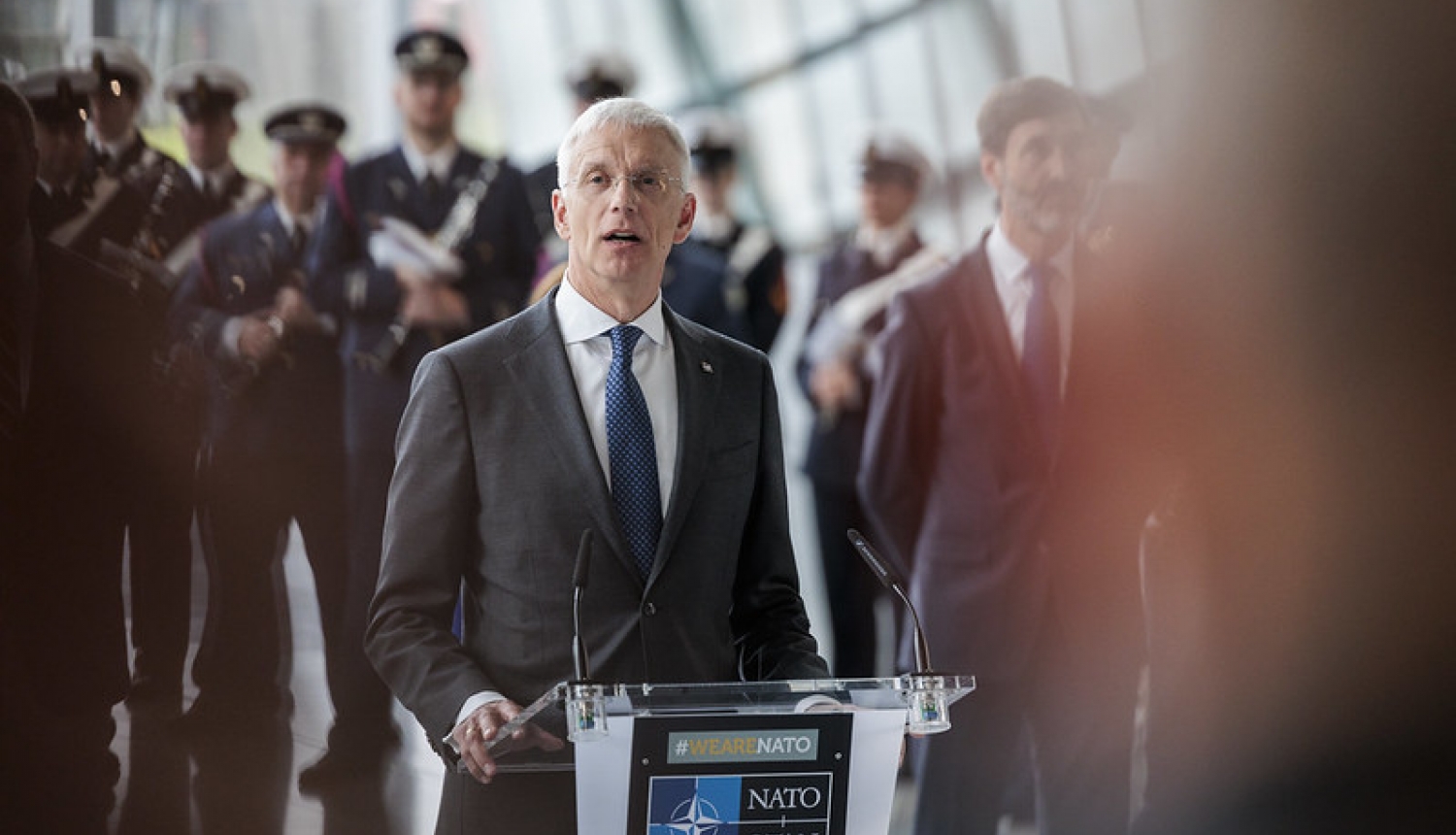On 3 and 4 April 2024, the Minister of Foreign Affairs of Latvia, Krišjānis Kariņš, took part in the meeting of NATO Ministers of Foreign Affairs in Brussels, where NATO Allies discussed current security and defence priorities in preparation for the NATO summit to be held in Washington in July. In his address to the participants, Krišjānis Kariņš underlined the need for NATO to agree on a long-term strategy to contain Russia.
The central issues addressed at the meeting were the strengthening of NATO’s defence capabilities, strengthening of NATO’s role in the long term in support of Ukraine, and reinforcing of cooperation with the Alliance’s partners in the Indo-Pacific.
The topic of key importance for Latvia was the strengthening of the Alliance’s deterrence and defence capabilities, which includes an increase in the Allied military presence on NATO’s eastern flank, strengthening air defence and missile defence, work on the implementation of the new regional defence plans and increasing investment in defence. In 2024, for the first time since the Cold War, the majority of NATO member states will invest more than 2% of their GDP in defence.
In an official ceremony as part of the meeting, the Foreign Affairs Ministers celebrated the 75th anniversary of the signing of the Washington Treaty, which formally established NATO.
“As we mark the 75th anniversary of the Alliance, it is clear that NATO and transatlantic ties are stronger than ever. The Allies have significantly strengthened their defence capabilities in recent years and are united in their determination to protect each centimetre of the Alliance’s territory from any external threat,” the Foreign Minister said.
In a festive address to NATO Foreign Affairs Ministers, Krišjānis Kariņš expressed gratitude for Latvia’s admission to NATO 20 years ago and for the resolve of the Allies strengthen the Alliance’s eastern flank. The Minister highlighted Latvia’s contribution to the Euro-Atlantic security, including active participation in NATO operations and ambitious investments in defence.
In his address, Krišjānis Kariņš underlined the need to continue discussions on NATO’s strategy against Russian threats to Allied security: “Regardless of the situation in Ukraine, Russia will remain the most significant long-term threat in the Euro-Atlantic space. In order to limit Russia’s ability to rebuild its armed forces, prevent its attempts to divide our societies and circumvent sanctions, NATO needs to agree on a long-term strategy to rein in Russia. Only with a united and firm approach will we be able to curb Russia’s imperial ambitions.”
The ministerial meeting included a session of the NATO-Ukraine Council, at which Ukraine was represented by the Foreign Minister Dmytro Kuleba. NATO Ministers heard out Dmytro Kuleba’s assessment of the current situation in the war and the acute needs of the Ukrainian armed forces on the frontline. The Allies demonstrated readiness to support Ukraine for as long as necessary by providing urgent military support, including anti-aircraft defences and artillery missiles. The meeting underlined the need to seek sustainable solutions to strengthening Ukraine’s capabilities on the battlefield and bring Ukraine closer to NATO membership. Krišjānis Kariņš informed the participants about Latvian-led initiatives in support of Ukraine, including the Coalition of Drones and large-scale training of Ukrainian soldiers. Latvia plans to provide Ukraine with military support of 0.25% of GDP for at least the next three years.
The session with Indo-Pacific partners – Australia, South Korea, Japan and New Zealand – and Joseph Borrell, the EU High Representative for Foreign Affairs and Security Policy, addressed opportunities for deepening cooperation and outlined common security challenges. Cooperation is based on shared values: strengthening the rules-based international order, democracy and the rule of law.
The NATO summit in Washington will be held from 9 to 11 July.





